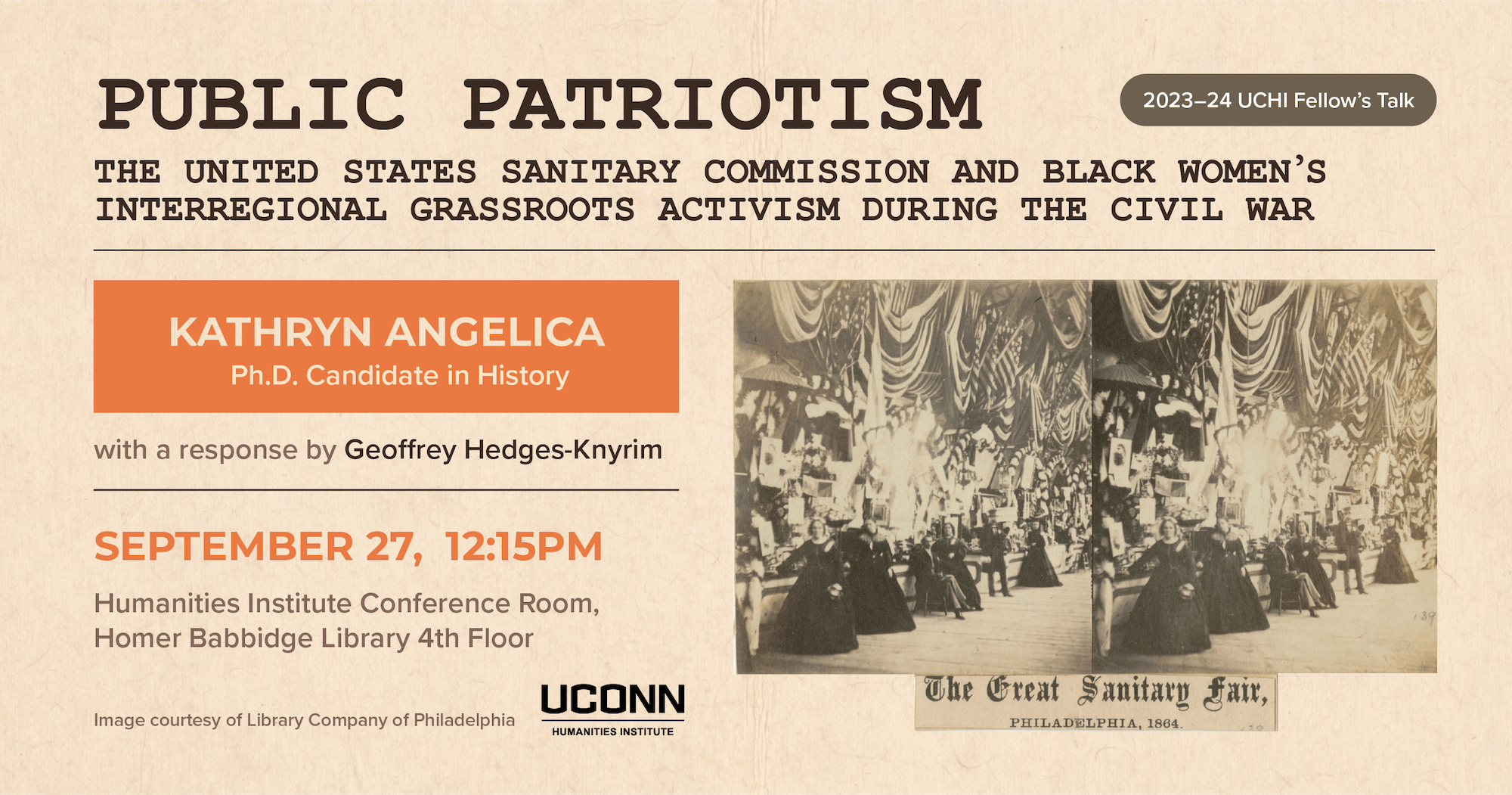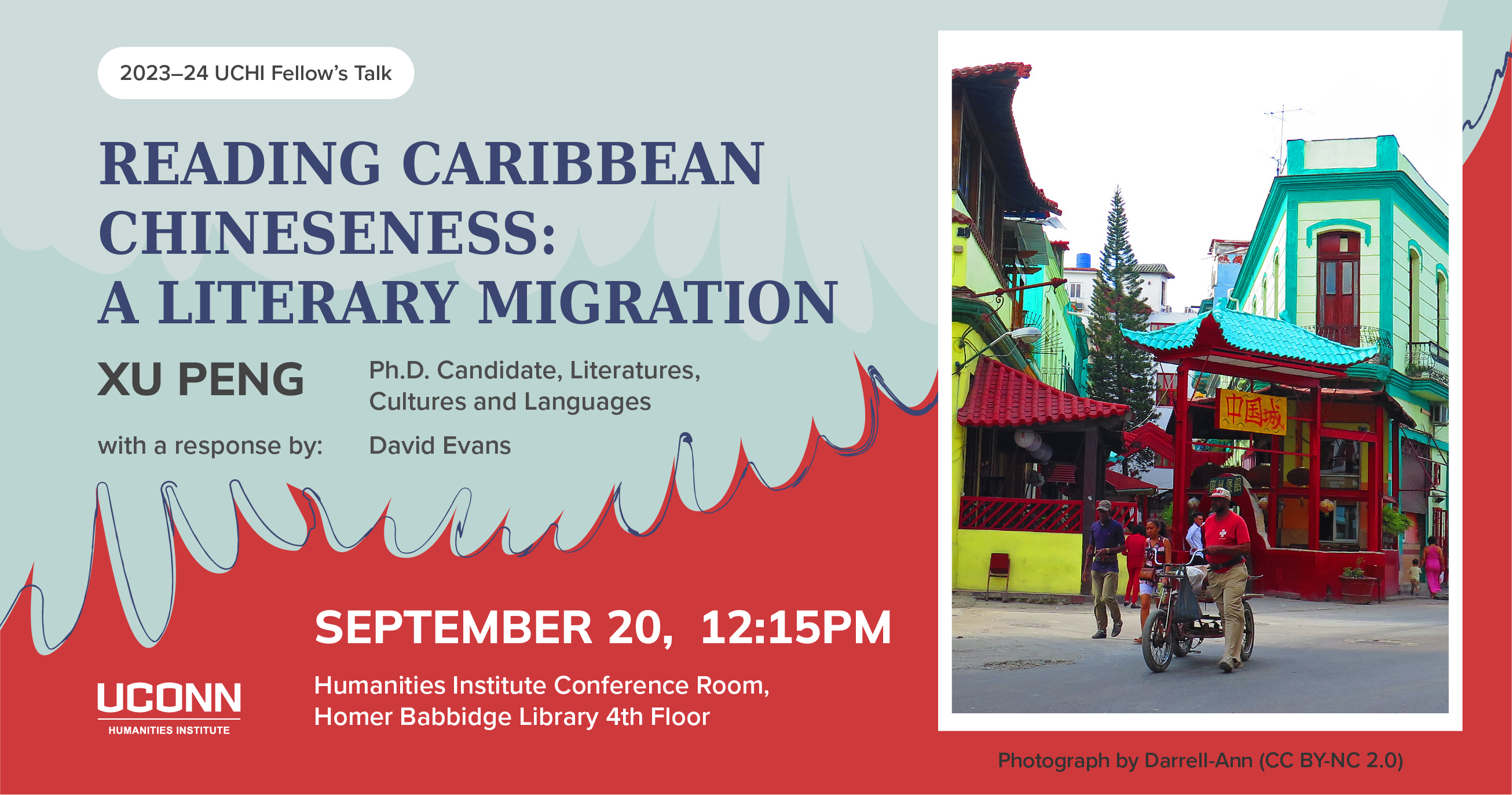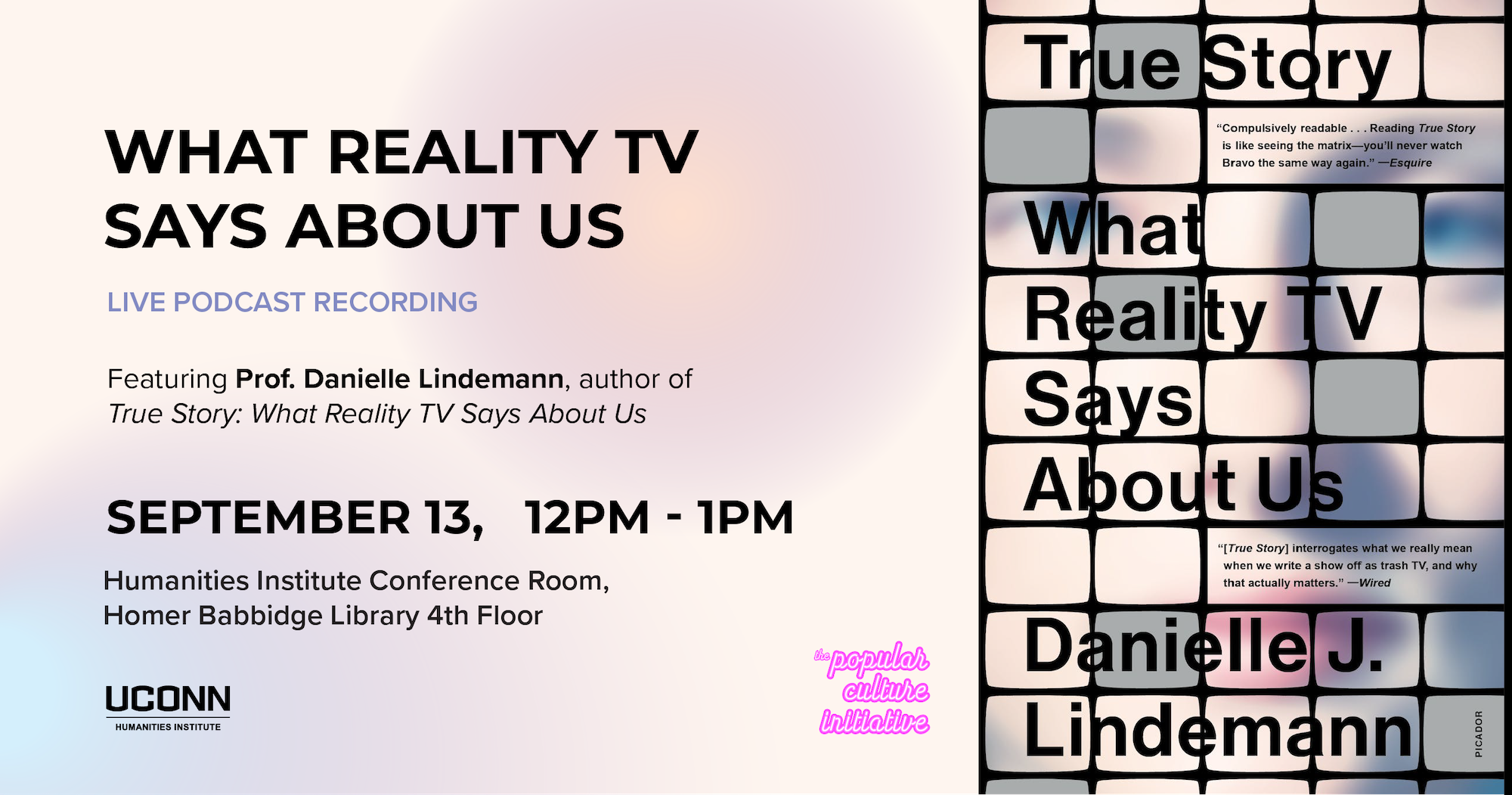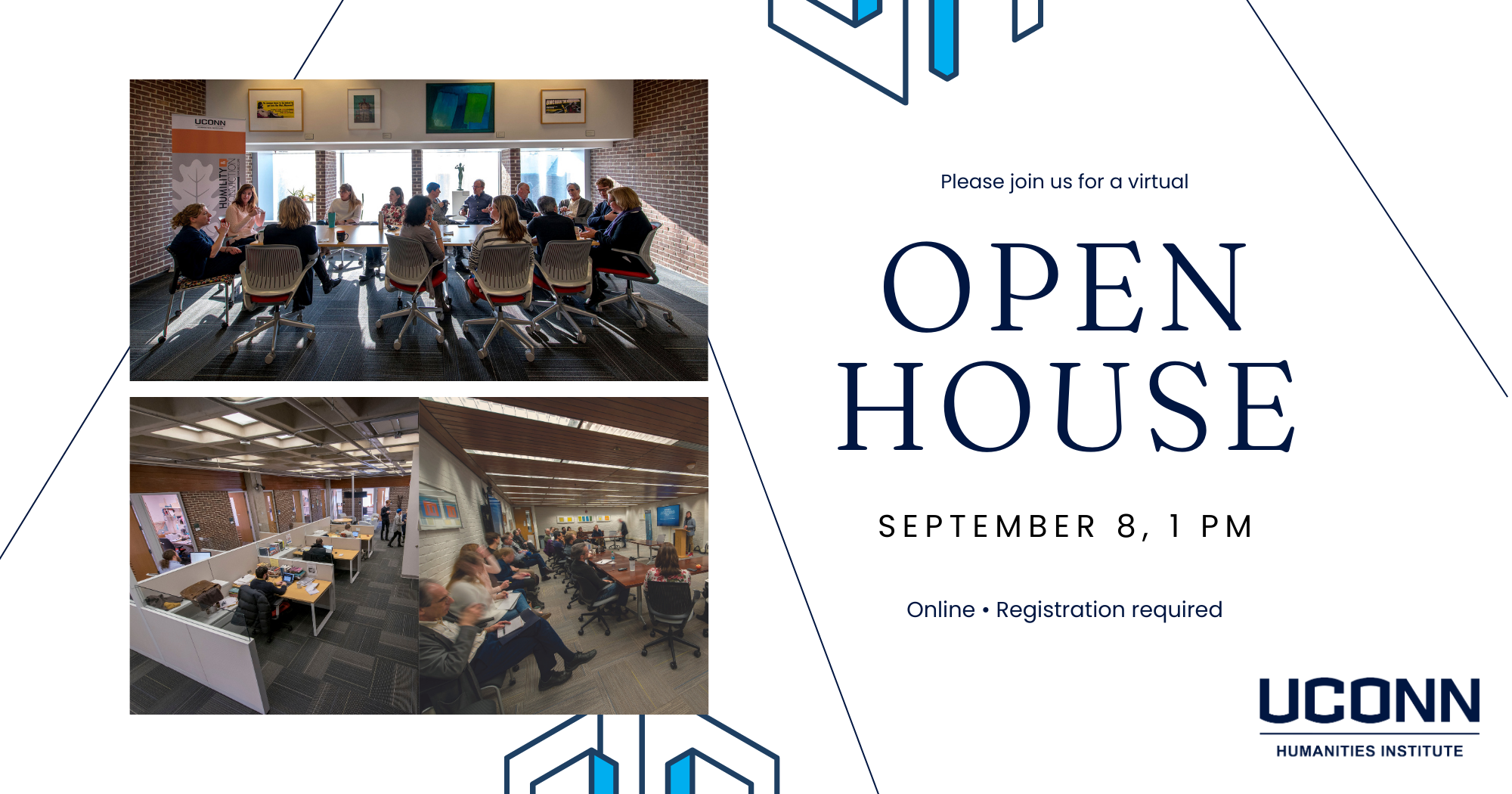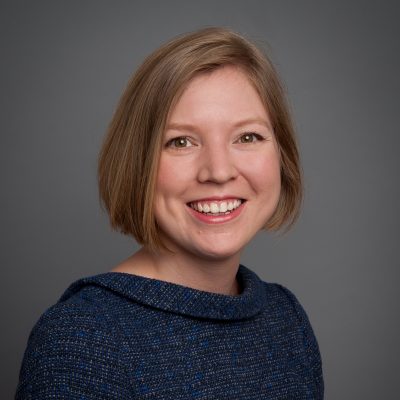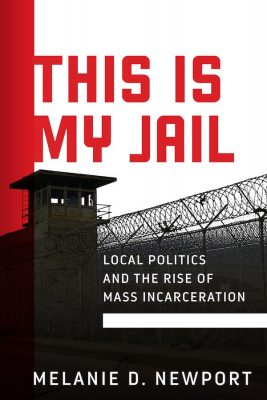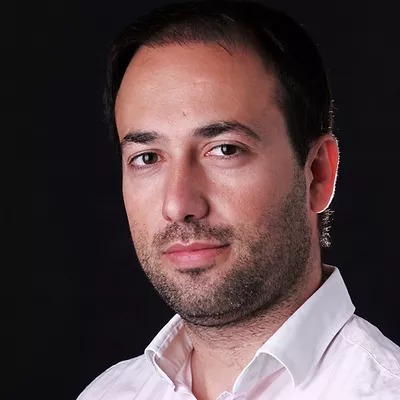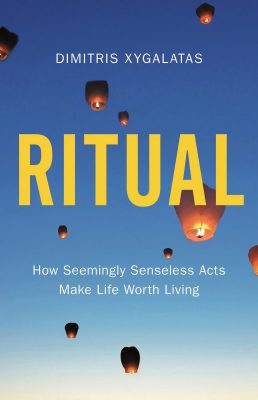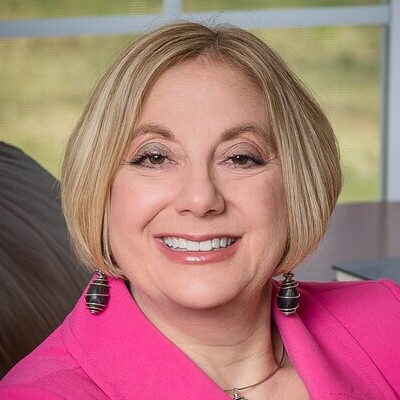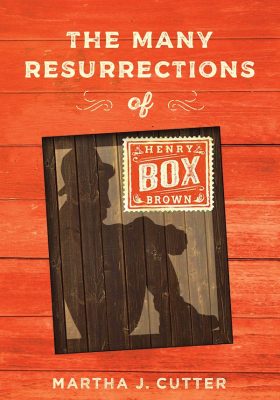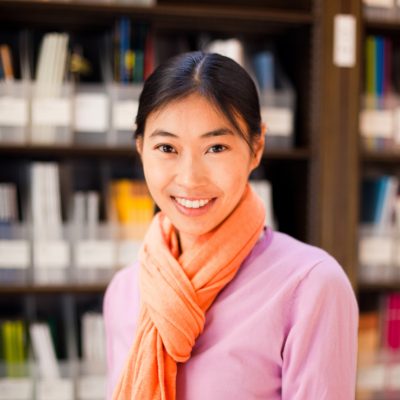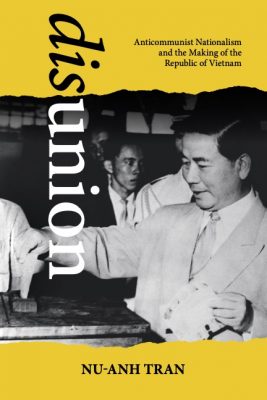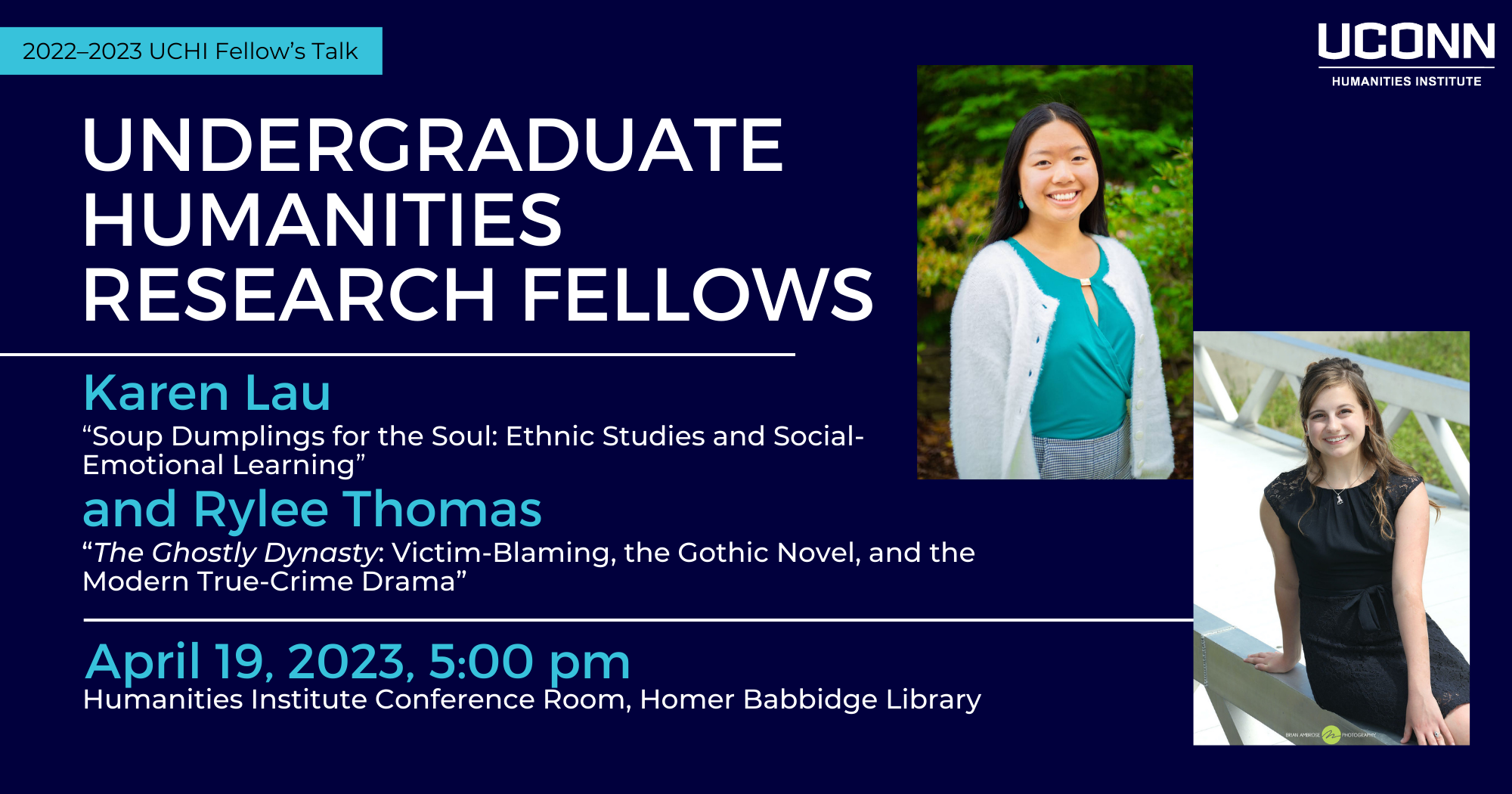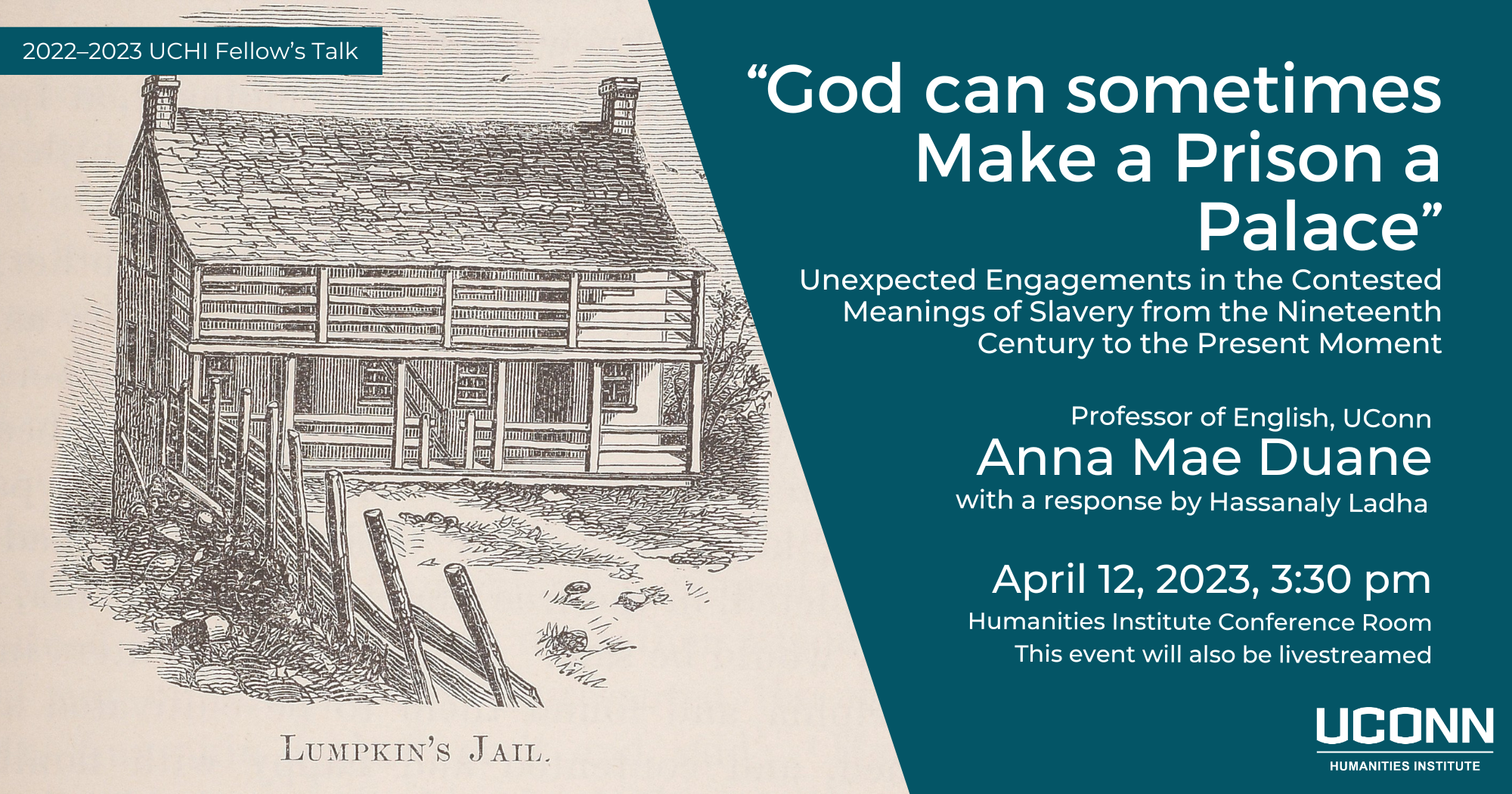Public Patriotism: The United States Sanitary Commission and Black Women’s Interregional Grassroots Activism During the Civil War
Kathryn Angelica (History, UConn)
with a response by Geoffrey Hedges-Knyrim (Anthropology, UConn)
Wednesday, September 27, 2023, 12:15pm, Humanities Institute Conference Room (HBL 4-209)
The event will also be livestreamed with automated captioning.
This talk examines how histories of the Civil War have neglected the contributions of African American women within and beyond the United States Sanitary Commission during the Civil War. Exploring African American laborers as janitors, clerks, waiters, and cooks, Black women’s contributions to the Sanitary Commission, and African American women’s independent patriotic organizations this talk considers the many ways women of color claimed their rightful place under the banner of patriotic Northern womanhood. Importantly, it also demonstrates how African American women’s organizations diverged from the centralized goals of the Sanitary Commission to encompass Black community support, aid for refugees, and medical relief for disabled soldiers.
Kathryn Angelica is Ph.D. candidate in the History Department. Her research interests include gender & sexuality, women’s activism, and African American history in the nineteenth-century United States. While at UCHI, Kathryn will complete her dissertation “An Uneasy Alliance: Cooperation and Conflict in Nineteenth-Century Black and White Women’s Activism.”
Geoffrey Hedges-Knyrim is an archaeologist and doctoral candidate in the Anthropology Department. He received his BS in Anthropology from The College at Brockport, SUNY in 2013 and his MA in Anthropology from the University at Buffalo, SUNY in 2015. His research interests include archaeobotany, Bronze and Iron Age archaeology of Southwest Asia, and ancient subsistence practices.
Access note
If you require accommodation to attend this event, please contact us at uchi@uconn.edu or by phone (860) 486-9057. We can request ASL interpretation, computer-assisted real time transcription, and other accommodations offered by the Center for Students with Disabilities.
